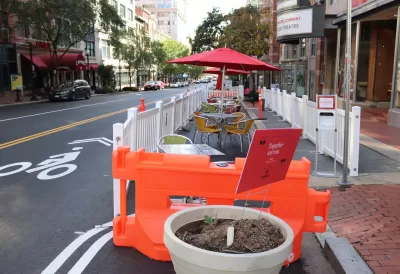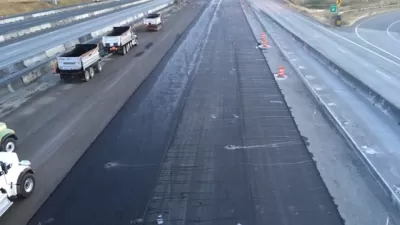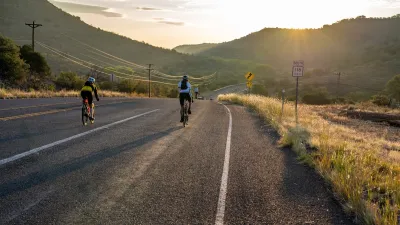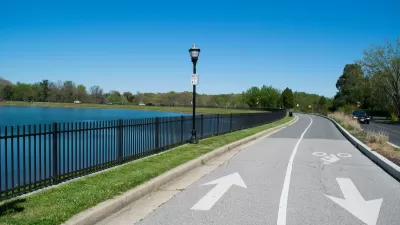Robust investment in the region's public transportation network can ensure a more equitable and sustainable path forward.

Writing in Greater Greater Washington, Caitlin Rogger questions the post-pandemic future of transit in the Washington, D.C. region. "Whether folks take transit, walk, roll, drive, take ride hailing services, or just don’t return physically to the same places they used to is closely tied with equity, livability, environmental quality and economic growth." With a growth in preference for single-occupancy vehicles and private transportation during the pandemic, is the region facing a "Carmageddon?"
If "those who can overwhelmingly choose to drive instead of taking sustainable modes" do so, Rogger argues, the resulting congestion "could choke the region’s economic recovery, and exacerbate health inequalities and environmental issues." To ensure equity and sustainability, she writes, the recovery cannot "be driven by those of us who can afford to drive." Rogger's suggestions for improving regional transit include using traffic downtime to build more bus and bike lanes, restoring transit services to pre-pandemic levels, repurposing parking, incentivizing bike usage through safer infrastructure and storage, implementing congestion pricing, and exploring avenues for lowering the cost of transit and reducing emissions.
The economic benefits of public transit are well documented. "A panoply of studies show that people using bikes, transit or walking to reach business destinations generate more business when they get there." Additionally, workers in low-wage jobs often depend on public transit. "To restore opportunities for lower-income workers that were taken away by the pandemic, it’s essential to ensure that bus services are able to meet riders’ needs with reliable, fast, convenient and affordable service," writees Rogger. If city leaders want to achieve their goal of a more equitable future, "that future requires vision and sustained investment in actions that will bring it about."
FULL STORY: Carmageddon? DC’s leaders can choose a different road.

Planetizen Federal Action Tracker
A weekly monitor of how Trump’s orders and actions are impacting planners and planning in America.

Maui's Vacation Rental Debate Turns Ugly
Verbal attacks, misinformation campaigns and fistfights plague a high-stakes debate to convert thousands of vacation rentals into long-term housing.

San Francisco Suspends Traffic Calming Amidst Record Deaths
Citing “a challenging fiscal landscape,” the city will cease the program on the heels of 42 traffic deaths, including 24 pedestrians.

Defunct Pittsburgh Power Plant to Become Residential Tower
A decommissioned steam heat plant will be redeveloped into almost 100 affordable housing units.

Trump Prompts Restructuring of Transportation Research Board in “Unprecedented Overreach”
The TRB has eliminated more than half of its committees including those focused on climate, equity, and cities.

Amtrak Rolls Out New Orleans to Alabama “Mardi Gras” Train
The new service will operate morning and evening departures between Mobile and New Orleans.
Urban Design for Planners 1: Software Tools
This six-course series explores essential urban design concepts using open source software and equips planners with the tools they need to participate fully in the urban design process.
Planning for Universal Design
Learn the tools for implementing Universal Design in planning regulations.
Heyer Gruel & Associates PA
JM Goldson LLC
Custer County Colorado
City of Camden Redevelopment Agency
City of Astoria
Transportation Research & Education Center (TREC) at Portland State University
Jefferson Parish Government
Camden Redevelopment Agency
City of Claremont





























